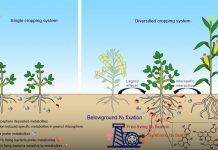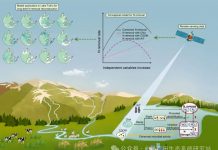Longlong Xia Shuwei Wang Xiaoyuan Yan. Effects of long-term straw incorporation on the net global warming potential and the net economic benefit in a rice–wheat cropping system in China. Agriculture Ecosystems & Environment Volume 197 1 December 2014 Pages 118–127
Abstract
Straw incorporation has multiple effects on greenhouse gas emissions and soil productivity. However few studies have comprehensively evaluated the effects of long-term straw incorporation. An ongoing long-term straw incorporation experiment in a rice–wheat cropping system in China was established in 1990 and was used in the present study to evaluate the net global warming potential (NGWP) and the net economic benefit (NEB) of the straw return. The following four field treatments were included: a control (CK); N P and K fertilization (NPK); fertilization plus a moderate rate of straw application (NPKS1); and fertilization plus a high rate of straw application (NPKS2). We calculated the increase in the soil organic carbon (SOC) and the straw-induced emissions of CH4 and N2O which were expressed as the global warming potential (GWP) in units of CO2-equivalent (CO2-eq) at the 100-year scale. The straw-induced NEB was defined as the difference between the economic income which was calculated by multiplying the increase in straw-induced crop grain yield by the grain price and the economic loss was computed by multiplying the increase in straw-induced CO2-eq emissions by the carbon price. The results showed that long-term straw incorporation significantly increased the CH4 emissions and the topsoil SOC density. The GWP of the straw-induced CH4 emissions was 3.21–3.92 times that of the straw-induced SOC sequestration rate suggesting that long-term direct straw incorporation in the rice–wheat systems worsens rather than mitigates the climate change. Additionally continuous straw incorporation slightly enhanced the rice and wheat grain yields contributing to the production of the NEB. We determined that under the current carbon price ranging from 2.55 to 31.71 EUR per ton CO2-eq the direct straw incorporation will produce a positive NEB ranging from 156 to 658 RMB ha−1 year−1 if the grain yield prices do not fluctuate which does not provide a significant incentive for farmers to change from their traditional direct straw incorporation pattern. Considering the other benefits that the straw application produced such as improving soil fert







